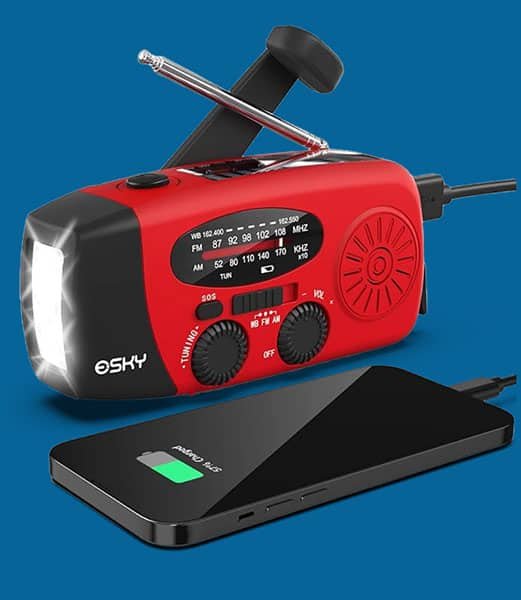Instant Flood Insurance At Great Rates: Zone X
Find out how much you can save on high quality, high coverage flood insurance plans in 10 minutes or less!







$2.3M+
Annual Premium Savings
4.9★
Average Ratings
445+
Reviews
5,497+
Happy Clients
Is Flood Zone X Good or Bad?
Have you ever paused to consider the true implications of residing in a flood zone? At first glance, the prospect might seem daunting—after all, the risk of flooding is an ever-present threat, much like other natural disasters that loom over various regions. Yet, dwelling within a flood zone unfolds a narrative of both challenges and opportunities, especially when we turn our focus to Flood Zone X.
Weighing Risks Against Rewards
Living in any flood zone inherently carries a degree of risk, notably the potential for property damage and loss. This risk is the stark reality for those situated in areas more prone to water’s whims. Flood Zone X, however, is designated by FEMA as an area of lower flood risk, not necessitating flood insurance for a mortgage. This distinction offers a silver lining—the potential for securing favorable insurance rates, a benefit not as readily available in higher-risk zones.
The Allure of Flood Zone X
The allure of Flood Zone X lies in its perceived safety compared to its higher-risk counterparts. It’s seen as a middle ground, offering residents a sense of security without the burden of exorbitant insurance premiums. However, this doesn’t entirely eliminate the risk of flooding. Unpredictable weather patterns and environmental changes have taught us that water does not adhere to our delineations and expectations.
Perspective is Key
So, is settling down in a flood zone, particularly Flood Zone X, advisable? The answer isn’t straightforward—it largely depends on your personal perspective and tolerance for risk. For some, the lower risk of flooding coupled with the chance to obtain more affordable insurance presents an attractive proposition. For others, the mere possibility of flood damage, however reduced, warrants caution.
Are homes in Flood Zone X required to have flood insurance?
Whether mandated by law or chosen voluntarily, flood insurance in Flood Zone X represents a wise investment in safeguarding your home against the unpredictable nature of flooding. Unlike the more at-risk Flood Zones A or AE, homes in Flood Zone X are not classified as Special Flood Hazard Areas and, as such, homeowners with federally backed mortgages are not required to purchase flood insurance. However, understanding that flooding can still occur, albeit with lesser frequency and severity, considering the protection that flood insurance offers could be prudent. In Flood Zone X, where the risk is minimal, premiums for flood insurance are significantly lower compared to higher-risk areas. This makes the decision to invest in flood insurance not only a cautious but also an economically sensible choice, particularly in light of the potential for occasional heavy rainfall and unexpected flooding events.
The Bottom Line: Preparedness is Paramount
Regardless of where you stand on this spectrum, one principle holds universally true: preparedness is non-negotiable. Whether you’re in the throes of deciding to move to Flood Zone X or you’re already nestled within its bounds, equipping yourself with the knowledge and safeguards against potential flooding is crucial. This might mean investing in flood insurance, even if not mandated, or implementing flood defenses for your home.
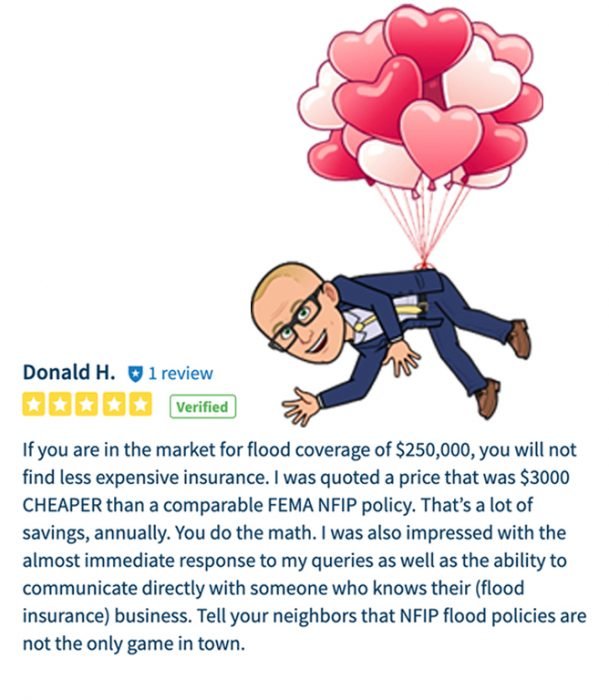
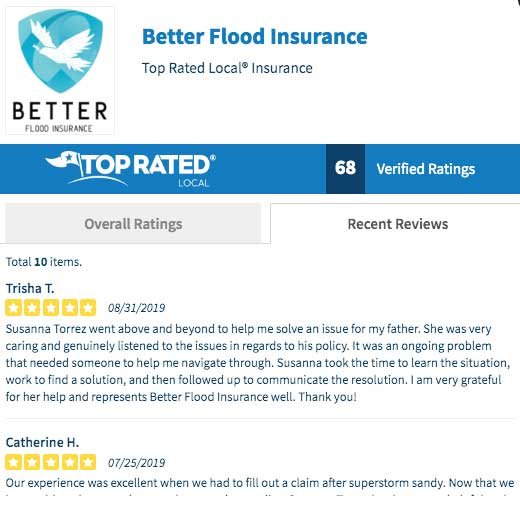
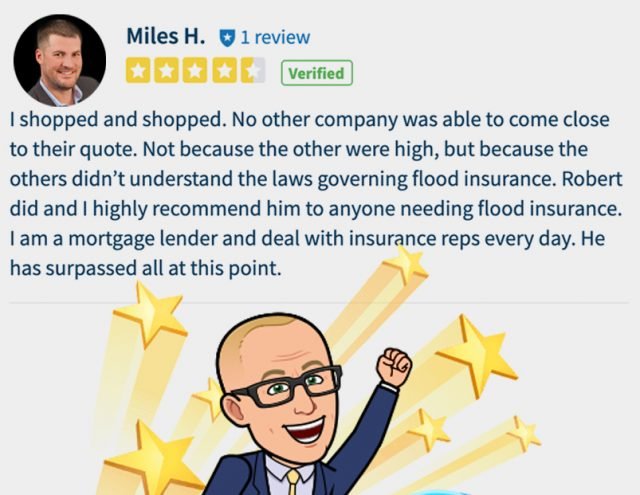
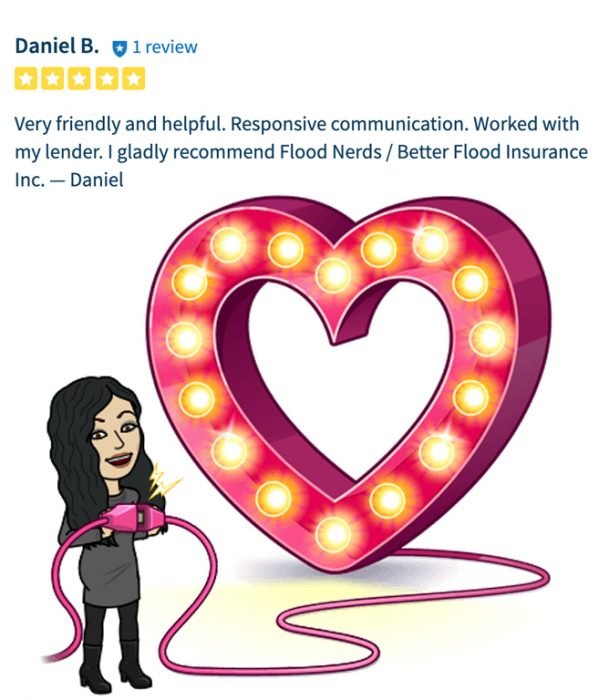
Embracing Flood Zone X
Flood Zone X, often considered the safest flood zone destination, presents a unique blend of opportunity and caution. Its designation as a lower-risk area offers solace to many, yet the changing climate and our evolving understanding of flood risks remind us that safety is relative. In the end, choosing to make a home in Flood Zone X—or any flood zone, for that matter—is a personal decision that should be made with a comprehensive understanding of the risks and rewards.
In conclusion, living in Flood Zone X can be a good decision if approached with the right mindset and preparation. Embrace the opportunities it presents, such as potentially lower insurance rates, but remain vigilant and proactive about flood risk. By doing so, you can turn what seems like a gamble into a calculated, well-informed choice, ensuring that you’re prepared for whatever nature decides to throw your way.
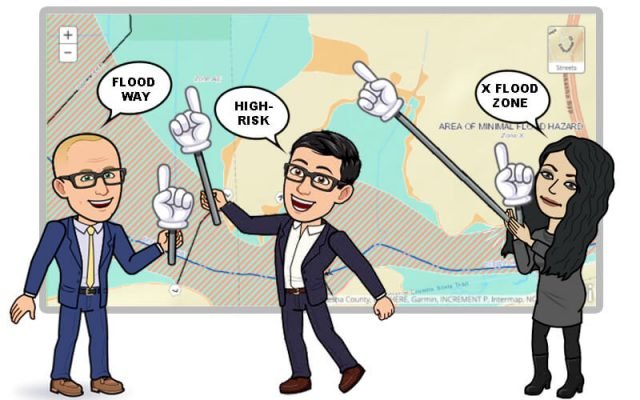
Understanding Flood Zone X: Risks and Rewards
Flood Zone X is often misunderstood, leading many to question its safety and implications for property owners. Unlike higher-risk zones that are directly in the path of potential flooding, Zone X is considered to have a lower risk. However, “lower risk” does not mean “no risk”, and understanding the nuances of this designation is crucial for homeowners.
Properties in Flood Zone X are not required by the federal government to have flood insurance, which might lead to significant savings in annual insurance premiums. This can be particularly appealing to homeowners looking to minimize expenses without drastically increasing their risk exposure. However, this doesn’t mean that flooding is impossible in these areas. Low-risk zones can still experience flooding, especially from events that exceed the design of local drainage systems or from unprecedented natural disasters.
The real reward of living in Flood Zone X comes from a balanced approach to risk management. Homeowners have the opportunity to voluntarily opt into flood insurance policies at potentially lower rates, providing an affordable safety net against the unexpected. It’s an investment in peace of mind, securing your property’s future while not overburdening your present finances.
Moreover, being in a so-called “safe” flood zone does not eliminate the need for preparedness. Homeowners should still take proactive steps to protect their property, such as installing sump pumps, ensuring proper landscaping for water runoff, and keeping an emergency plan in place. These actions, coupled with the strategic advantage of affordable insurance options, empower homeowners to turn the tide in their favor, making the most out of their Flood Zone X status.
In conclusion, while Flood Zone X might be seen as a gray area between high-risk and no-risk, it presents a unique opportunity for savvy homeowners. By understanding the risks, rewards, and protective measures available, residents can navigate the complexities of flood zones with confidence, securing both their homes and their wallets against the unpredictability of nature.
What's the difference between shaded and unshaded Flood Zone X?
The distinction between shaded and unshaded areas within Flood Zone X lies in the level of flood risk they signify. Shaded Flood Zone X refers to areas with a moderate flood risk, specifically between 0.2% and 1% annually. In contrast, unshaded Flood Zone X indicates a lower flood risk, less than 0.2% annually, and these areas might also be safeguarded against the 100-year flood by a levee.
Anywhere is at risk of flooding, so flood zone X is no different.
Flood zones have a varied reputation, with questions “is AE flood zone bad” and “is flood zone X good or bad?” at the top of Google searches for many property buyers or renters.
But is AE, X, x500 flood zone “bad” is difficult to answer with a yes or no.
While anywhere it rains is at risk of flooding, and that’s certainly true of flood zone X and x500.
People who have properties in a flood zone X can make an informed decision based on current data and available resources whether to choose to insure or not.
Some people feel that if their lender isn’t forcing them to purchase a policy they might be safe and choose to forgo getting one.
Therefore, while it is important to be aware of the potential risks, in the end, it is up to each individual whether or not they feel good, and can sleep at night about living in any flood-prone area and making the most out of their choice.
Does flood zone X require flood insurance in Florida?
It's As Easy As 1, 2, 3!
1
Fill Out Our Online Form
Complete our easy quote form so we can understand your needs & personalize your rates.
2
Get An Instant Quote
Our team scours insurance companies nationwide to instantly present the best coverage & rate options for your needs.
3
Get Coverage
If you’re happy with the coverage options, you can sign up easily directly from our online portal.
In the landscape of flood insurance, Flood Zone X in Florida presents a unique scenario. Typically, properties in this zone do not mandate flood insurance as a prerequisite for securing a mortgage. This is because Flood Zone X is deemed to have a lower risk of flooding compared to other designations. However, the decision to forgo flood insurance should not be taken lightly. While lenders may not require it, the increasing unpredictability of weather patterns and legislative changes could alter the current landscape.
Recent discussions and legislative trends in Florida suggest a shift towards more protective measures for homeowners, especially in light of climate change and its impact on weather severity and frequency. For instance, properties insured by Citizens Property Insurance Corporation, a major provider in Florida, may soon see changes in their policies that encourage or require flood insurance in areas previously deemed low-risk, including Flood Zone X. This proactive approach aims to safeguard homeowners from the financial devastation that flooding can cause, even in areas where the risk is traditionally considered low.
How much is flood insurance in Flood zone X in Florida?
When considering the cost of flood insurance in Flood Zone X, it’s important to weigh the investment against potential risks. In Florida, the cost for flood insurance policies we facilitate typically ranges from as low as $500 to $1,500 annually across various flood zones, including Zone X. This investment pales in comparison to the staggering costs associated with flood damage, which can range from $30,000 to $150,000 per flooding event.
Investing in flood insurance in Flood Zone X is not merely about compliance with lending requirements but about protecting your home and financial wellbeing. The relatively affordable premiums for properties in this zone offer a cost-effective way to mitigate the financial risks associated with flooding. Given the potential for significant financial loss due to flood damage, securing a flood insurance policy emerges as a prudent decision, ensuring peace of mind and financial security for homeowners.
As Florida continues to navigate the complexities of flood risk and insurance requirements, staying informed and proactive in securing adequate protection for your property is paramount. Whether mandated by law or chosen voluntarily, flood insurance in Flood Zone X represents a wise investment in safeguarding your home against the unpredictable nature of flooding. Our team is here to assist you in finding an affordable and comprehensive flood insurance policy that meets your needs and provides the protection your home deserves.
You have a difficult choice to make when it comes to deciding whether or not to buy flood insurance in flood zone X.
Navigating the decision to purchase flood insurance in Flood Zone X involves a nuanced understanding of risk, cost, and potential future impact. This zone, designated by FEMA as having lower flood risks compared to areas like zones A or V, still carries a non-negligible chance of flooding. The implications of this decision extend beyond mere compliance with regulatory requirements; they touch on the very essence of home protection and financial planning.
If you do decide to live in flood zone X, be sure to take all the necessary precautions to protect your home and belongings from flooding.
Navigating the decision to purchase flood insurance in Flood Zone X involves a nuanced understanding of risk, cost, and potential future impact. Exploring your flood insurance options in this designated lower-risk area by FEMA requires considering both the real risk of flooding and the associated flood insurance cost. The implications of this decision extend beyond mere compliance with regulatory requirements; they touch on the essence of home protection and financial planning.
Understanding the Real Risk
While Flood Zone X is considered lower risk, “lower” does not mean “no” risk. Historical data and changing climate patterns have shown that floods can and do occur in these areas, often catching homeowners unprepared. Assessing your flood insurance options becomes crucial in this context. The question is not if a flood could happen, but rather if you’re willing to take the gamble. With the increasing unpredictability of weather events, areas previously spared from severe flooding have found themselves underwater, prompting a reevaluation of what “low risk” truly means in the context of flood insurance.
The Financial Equation
The cost of flood insurance in Flood Zone X is generally more affordable compared to higher-risk zones, making it a key factor in the decision-making process. This affordability should be weighed against the potential cost of flood damage. Without insurance, the financial burden of repairing flood damage—ranging from minor renovations to complete rebuilds—falls squarely on the homeowner. In contrast, understanding the flood insurance cost can show how a relatively modest annual insurance premium offers a safety net, transforming a potentially catastrophic financial hit into a manageable expense.
Making the Informed Decision
The choice to secure flood insurance in Flood Zone X should be informed by a comprehensive assessment of your financial stability, the value of your property, your risk tolerance, and the available flood insurance options. It’s a decision that balances the statistical likelihood of flooding against the potential financial and emotional cost of being unprepared. Consulting with insurance professionals, reviewing flood history in your area, considering future climate trends, and understanding the flood insurance cost are all prudent steps in this decision-making process.
Moreover, it’s essential to consider the broader context of your life plans and financial health. For some, the peace of mind that comes from knowing their home is protected through carefully chosen flood insurance options is invaluable. For others, the decision may hinge on the analysis of risk versus cost. Either way, the decision to invest in flood insurance in a supposedly low-risk area like Flood Zone X is a testament to the adage that it’s better to have it and not need it than to need it and not have it.
Deciding whether to buy flood insurance in Flood Zone X is more than a financial calculation; it’s a personal choice that reflects your approach to risk management and protection of your most valuable asset—your home. In a world where the unexpected has become the norm, the question of flood insurance, exploring your options, and understanding the associated costs demand careful consideration, informed by the latest data, personal circumstances, and a clear-eyed assessment of what you stand to lose—or gain—by choosing to protect your home against the possibility of flooding.




